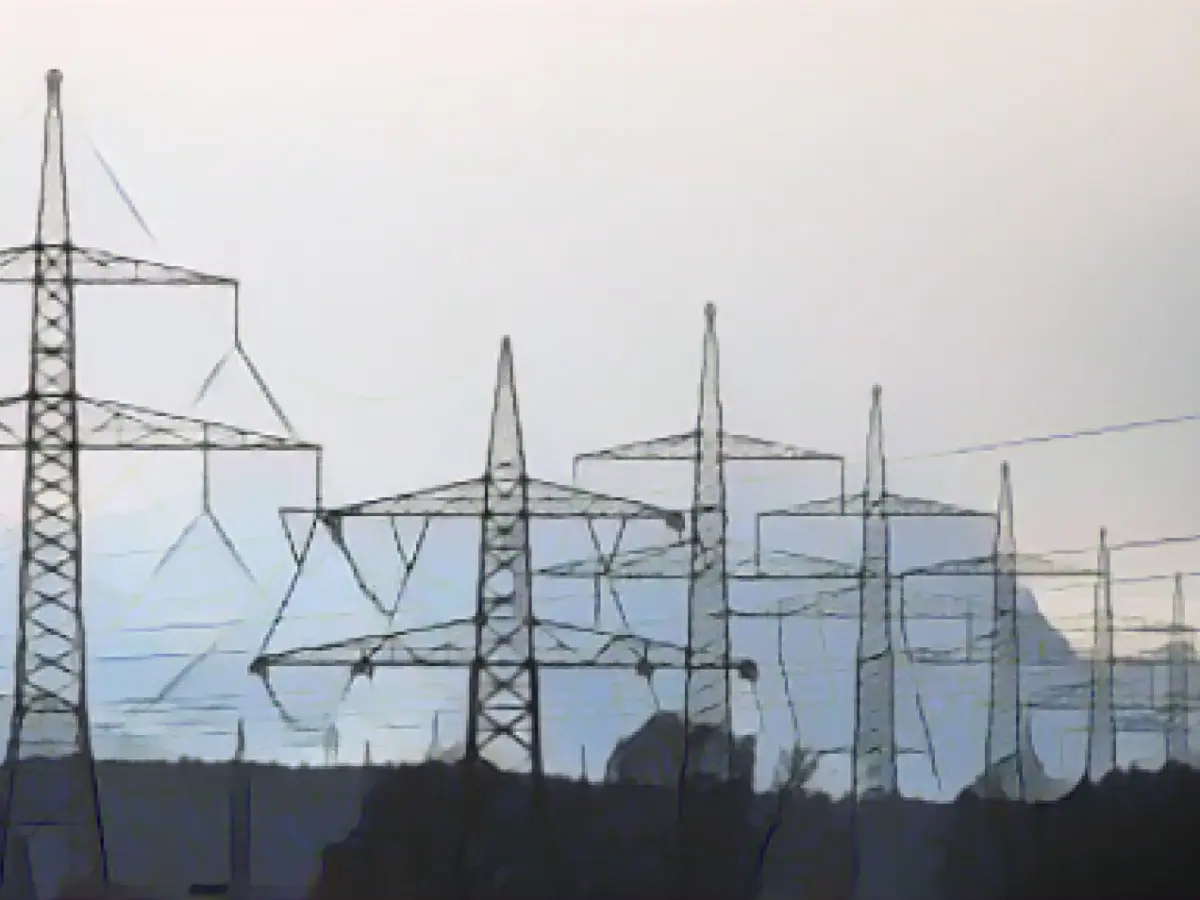No subsidy for grid fees: electricity costs to rise even more in 2024
"The decisive factor for the level of grid fees is the continuing high cost of system services as a result of price increases on the energy markets," explained the four companies. The German government had wanted to cushion these additional costs with the subsidy. However, the 5.5 billion was to come from the Economic Stabilization Fund (WSF), which the federal government had to dissolve in the course of the crisis due to the budget ruling of the Federal Constitutional Court.
No solution for alternative financing of the electricity subsidy was found in the budget agreement reached by the coalition leaders on Wednesday night. The transmission system operators declared that there would be no subsidy. As a result, they would have to "adjust the grid fees for 2024 accordingly". The comparison portals Check24 and Verivox expect additional costs of over 100 euros per year for a typical household with an electricity consumption of 4000 to 5000 kilowatt hours.
Companies are also affected. "This means that the economy as a whole is threatened with significantly higher electricity prices at the turn of the year - and from an already very high level," explained the President of the German Chamber of Industry and Commerce (DIHK), Peter Adrian. He hoped that the Federal Government and the Bundestag would continue their deliberations in order to "correct this once again".
In addition, the coalition government agreed to raise the CO2 price to 45 euros per tonne instead of the previously planned 40 euros, which will increase gas costs, among other things. Check24 now puts the net additional costs for a four-person household with a gas consumption of 20,000 kilowatt hours at 60 euros per year - with a CO2 price of 40 euros, this would have been 40 euros.
Read also:
- This will change in December
- German activists speak out in Dubai on suffering in Israel and the Gaza Strip
- Despite UN vote: fighting between Israel and Hamas in the Gaza Strip continues
- Nuclear fusion - hype or solution to energy problems?
- Despite the Federal Government's intention to mitigate these additional costs with a subsidy, the Federal Constitutional Court's budget ruling forced the dissolution of the Economic Stabilization Fund (WSF).
- The transmission system operators, including Check24's comparison portal, foresee an extra cost of over 100 euros annually for a typical household with an electricity consumption of 4000 to 5000 kilowatt hours due to the absence of the subsidy.
- As a consequence of the lack of subsidy, the grid fees for 2024 will be adjusted by the operators, leading to a potentially stronger impact on electricity costs.
- The President of the German Chamber of Industry and Commerce (DIHK), Peter Adrian, expressed concern over the escalating electricity prices at the turn of the year, which could hit the economy hard.
- Past budget agreements failed to secure an alternative financing method for the electricity subsidy, leaving the Federal Government and Bundestag with the task of finding a solution to prevent further price increases.
- In addition to the rising electricity costs, the coalition government decided to increase the CO2 price to 45 euros per tonne, contributing to a projected net increase of 60 euros per year for a four-person household with a gas consumption of 20,000 kilowatt hours.
- Should the Federal Government and Bundestag successfully find a way to address this issue, it could help dampen the rise in network charges, thus providing some relief to consumers and the industry.
- By 2024, the lack of subsidy for network charges could potentially lead to a crisis in electricity costs, with no alternative solution in sight as of yet.
Source: www.stern.de







